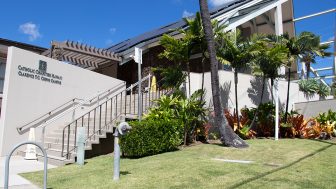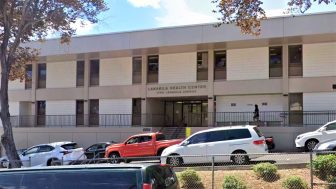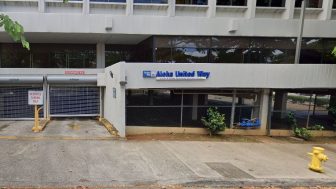The Salvation Army Addiction Treatment Services (ATS)
3624 Waokanaka Street
Honolulu, HI 96817
About The Salvation Army Addiction Treatment Services (ATS)
Based in Honolulu, Hawaii, The Salvation Army’s Addiction Treatment Services provides accredited addiction treatment to adults aged 18 and older, including pregnant and postpartum individuals, regardless of gender, race, or background.
This particular facility has been supporting countless individuals with substance abuse disorders since 1970 by offering non-medical detox services, as well as residential and outpatient treatment for substance use disorders. Here, individuals can learn self-sufficiency, and receive support as they re-enter society post-recovery.
The recovery journey might begin with detox. This is a residential program that provides a safe and supportive detox center where participants can get clean. Detox typically takes three to seven days and involves an initial assessment and treatment planning, medication administration, individual counseling sessions, addiction and health education, and access to community resources. Residents are monitored daily to keep tabs on their medical condition and any withdrawal symptoms. Referrals can be made for those who need more intensive care or access to other recovery settings.
The detox stage is usually followed up with residential treatment, which is usually recommended for seriously affected individuals and high-risk offenders. Participants benefit from a structured program here, and an intensive, customized recovery plan to keep them on track. Residential services are gender specific, and involve an average of 40 hours of 1:1 treatment activities. Some of these treatments and activities may include individual, group, and family counseling, cognitive restructuring, educational sessions covering life skills, HIV prevention, relapse prevention, family education, as well as vocational counseling.
Drug testing is also a feature here, as well as 12 Step support services. During their stay, residents will be provided with nutritious and professionally prepared meals. The length of residential treatment will, of course, vary depending on the individual and their needs, but may range from anywhere between 30-90 days, providing options for short-and long-term care.
Day treatment or intensive outpatient services are often the next step, offering flexible yet structured daily sessions to individuals able to stay sober with the help of professional support. Day treatment sessions typically take place over 6 hours per day, while intensive outpatient sessions are 3 hours long, and take place a minimum of three times weekly. Outpatient sessions are up to 8 hours weekly.
Following a primary treatment program, clients can access a minimum of 12 weeks aftercare to support their long-term, and sustainable recovery.
Amenities
Private drug rehab provides a comfortable, secure environment that allows you to focus on doing the work to get your life back on track. Benefits include a higher staff-to-client ratio, increased one-on-one time with therapists and healthcare providers, private rooms for clients, and customized forms of therapy.
Addiction Treatment Programs
A young adult program in Hawaii is important for addressing the needs of this stage of life. Young adults face different challenges and have different motivations for using substances than older adults, and a young adult rehab program addresses these unique needs.
Men and women over 18 who struggle with substance abuse can receive treatment through an adult program in Hawaii. Programs may include inpatient and/or outpatient care and typically include individual and group therapy methods.
Remission from alcohol use disorder is achieved through effective alcohol rehab in Hawaii. Participants learn how to cease heavy drinking and develop healthy lifestyle habits that lead to long-term sobriety.
Men’s rehab in Hawaii often reduces the risk of relapse and increases treatment completion rates by giving men the opportunity to create bonds with other men who have similar challenges. They feel comfortable sharing their struggles, and continue the supportive relationships after treatment.
Because women often abuse substances for different reasons than men, women’s rehab in Hawaii provides treatment that is targeted for women. Programs focus on specific trauma, stigma, bias, and gender-role issues that can affect substance use disorders among women.
Cognitive behavioral therapy in Hawaii teaches people positive behaviors to replace alcohol and drug use. They learn better ways to cope with negative thoughts and emotions and challenging situations.
Drug rehab in Hawaii is for individuals suffering from substance use disorders. Treatment addresses the many issues involved with addiction, typically through a combination of medical and psychotherapy treatments.
The backbone of rational emotive behavioral therapy in Hawaii is the ABC model. Therapists use this method to help individuals struggling with addiction alter their thinking and behavior. Individuals acknowledge the Activating event (trigger), evaluate their Beliefs (rational or irrational), and consider the Consequences (actions resulting from the beliefs about the event).
Levels of Care
During outpatient rehab in Hawaii, you will have more freedom and less oversight than with inpatient treatment. The goals will be to stay clean, demonstrate the ability to act responsibly, and show continual progress toward recovery. This will include attending therapy and support group sessions.
Aftercare rehab in Hawaii typically lasts for a year after your initial treatment. This program provides ongoing support to maintain sober living. Support may include budgeting assistance, career guidance, and continued counseling, as well as 12-step meetings.
When you enter inpatient drug rehab in Hawaii, you’ll live at the facility until completion of the program. In this setting, you will typically participate in individual, group, and family therapy sessions, and you may receive medication and additional recreational and holistic therapies.
The first step to becoming drug-free is detox. During this initial stage of drug rehab in Hawaii, your body is cleansed of all additive substances. The length of time varies by individual, but it always involves 24/7 medical supervision for a slow, safe process.
Hawaii sober living gives you the opportunity to solidify your sobriety before living completely independently. These residential settings offer drug-free environments with structured schedules. You’ll adhere to house rules, contribute to household chores, and attend 12-step meetings. The average stay in sober living is five to eight months.
Intervention services in Hawaii are often necessary to convince your loved one to get the treatment they need. Professional intervention specialists can provide pre-intervention counseling for family members, assist with staging an intervention, and provide resources to create a treatment plan.



